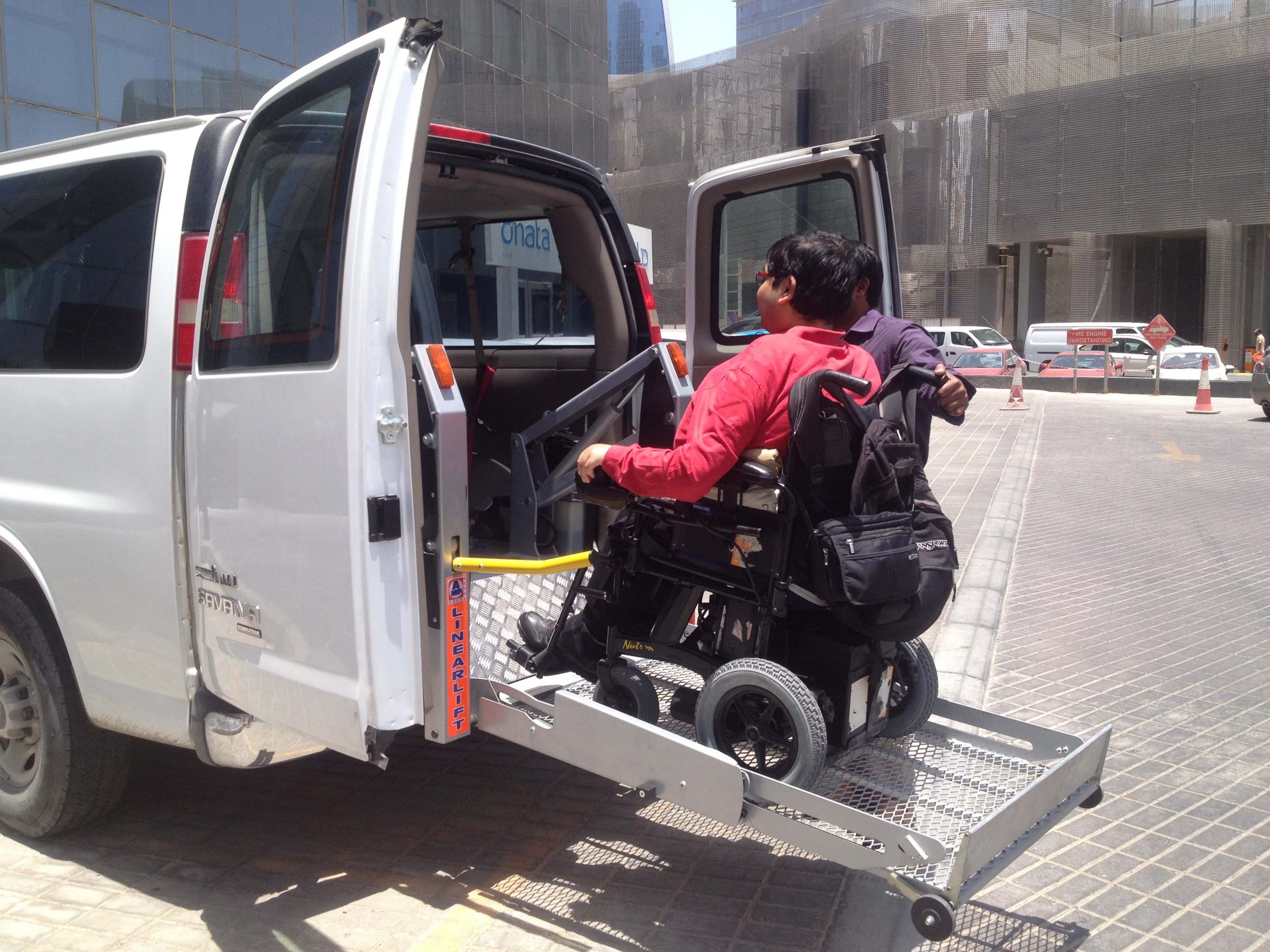With hundreds of disabled fans expected to flock to Qatar in less than two weeks time, many are questioning the country’s readiness to host the ‘most accessible World Cup yet,’ — and for good reason.
Laila, a 23-year-old resident who suffers from cerebral palsy, has lived in Qatar her entire life. She has grown to adapt to almost every challenge one can face when wheelchair-bound, thanks to the endless resources driven by technological evolution and her own creative nature.
But despite all her efforts, one thing remains beyond her reach: accessible transportation in Qatar— a country that has been on a mission in ensuring inclusivity for the past decade.
“One of the things I dread the most when I have plans is how to get to my destination,” Laila told Doha News. “It feels like there are only a couple of taxis or private cabs that are wheelchair friendly in the country. I actually consider myself lucky if one is available for me when I need it.”
Over the past years, the Gulf nation has undergone significant modifications to streamline accessible features into its infrastructure plans. This has included building a metro system that is fully wheelchair friendly, stadiums that ensure inclusivity for all groups and a better road system.
Yet, with all the changes, one thing seems to still be left uncovered; for a country that is set to host the biggest football event of all time in less than 15 days, it significantly lacks transportation options that are wheelchair friendly outside its brand-new metro system, according to several sources.
Out of the 20+ private limousine companies in the country, less than three have wheelchair-friendly vehicles available. And for those who do, the cost is usually too high, almost double the normal rate.
Uber, Careem, and other well-known applications have also yet to introduce accessible options in Qatar, leaving a portion of the population frustrated and unable to move around freely.
Meanwhile, Karwa, Doha’s public transportation service, has only a handful of cars available, most of which are normally already booked throughout the day.
According to Laila, cars have become increasingly less available over time due to growing demand.
The Qatar resident spends most of her time organising her schedule to know the exact time she might find a wheelchair-accessible taxi to pick her up and drop her off from her home and back. And even with all the planning involved, it is not guaranteed that she will be able to find a vehicle available to meet her needs.
“It is a mission,” Laila describes it.
“I feel like it depends on the location. Whenever I’m in areas like West Bay and Lusail, I am more likely to find a Karwa taxi available if I call to book. But during rush hour or long distance, I barely find,” she told Doha News.
Earlier this year, the Karwa mobile App had an option to book a wheelchair-friendly vehicle on the spot. However, the option was suddenly removed with no explanation from the company.
“It has a reached a point when I don’t want to go out anymore. I just tell my friends to come over, because it is embarrassing to always have to cancel,” Malak, another wheelchair user, told Doha News.
“My parents can’t afford to buy me a car. It is too much to ask for after all the expenses they already pay, including my medication and wheelchair. I just don’t want to be a burden to them to have to always worry about.”
Is accessible transportation a right or a luxury?
Problems for many wheelchair users don’t just stop at accessibility.
In addition to the lack of transportation options, the prices for wheelchair-friendly cars have hit an all-time high in the country, including public taxis like Karwa. According to Mowaslat, the price for a wheelchair-friendly car starts at 95 QAR (almost $26), while normal car prices start at 7 QAR ($2).
This means for users to get accessible cars, they need to pay 13x the price of a normal taxi. For many, such prices are simply not affordable.
“The prices are something else. I see my parents worry about my expenses and it just hurts that something as simple as transportation costs so much for me. It is so hard not to feel like a burden and think positively when you have to pay more than 300 to reach somewhere,” Malak added.
Doha News reached out to Karwa for a comment but did not receive a response at the time of publication.
A drive for better inclusivity
While most people have the privilege of ordering a taxi through their mobile applications within seconds, disabled people are yet to experience such convenience despite all the technological advancements.
With no quota system in place, many of the transportation options have yet to include wheelchair friendly options, and for a country as hot as Qatar, ‘wheeling’ to the closest metro station may impose a significant danger to the person, especially for roads that are not wheelchair friendly.
Doha News has reached out to the Ministry of Transport to enquire about future plans to tackle the shortage, but has yet to receive a response.







